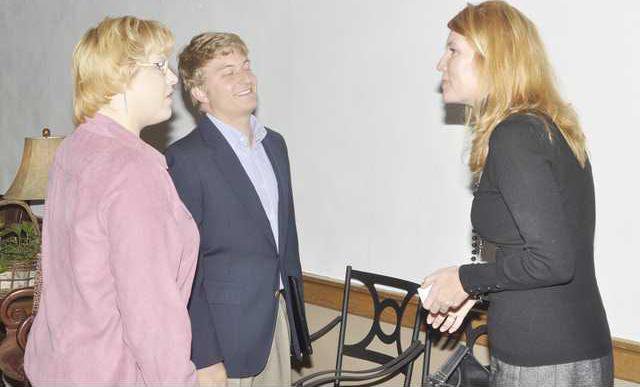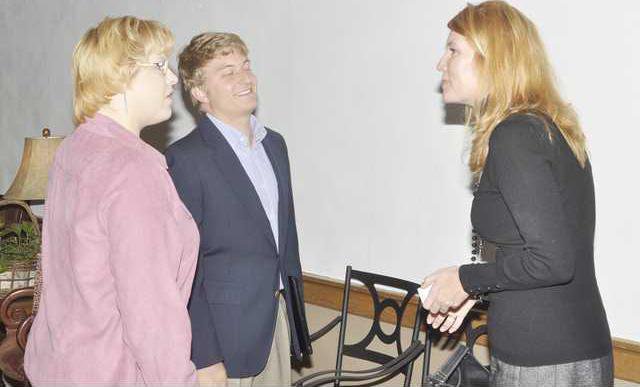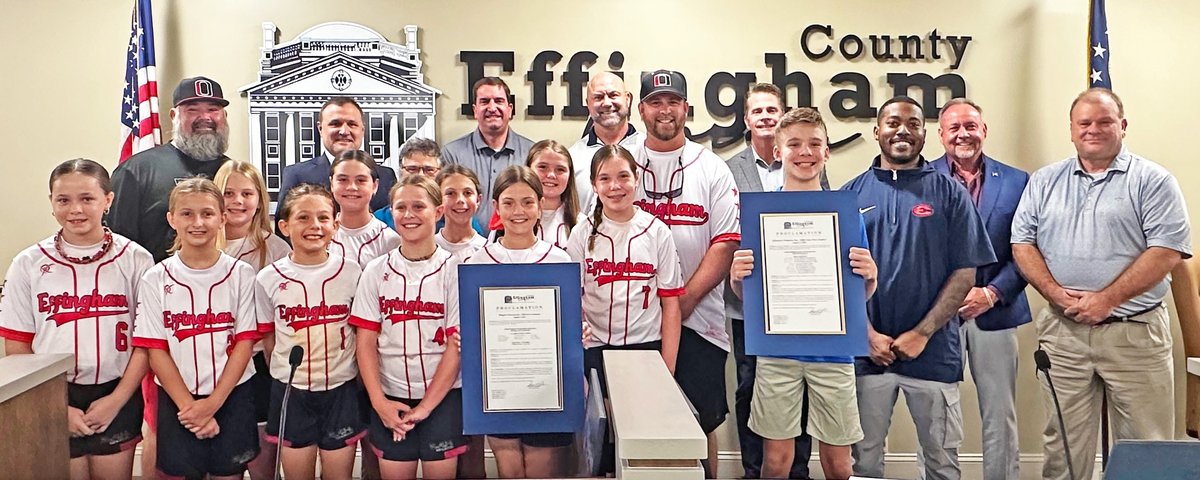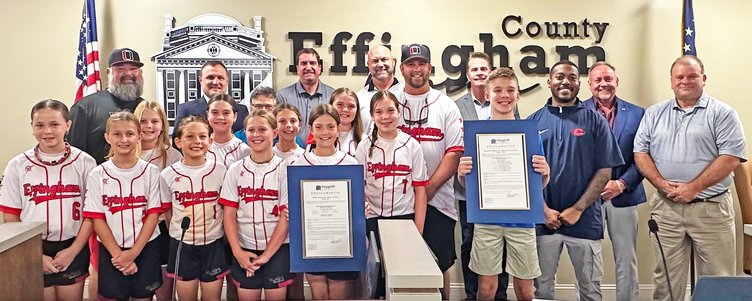Business is soaring at Gulfstream Aerospace, and along with it, so is its employment rolls.
As the expansion of its Savannah base continues, Gulfstream is looking to add more and more workers to its labor force.
"We need engineers like we need oxygen," said Shannon Underhill, Gulfstream’s workforce development manager.
Underhill spoke to the Effingham County Chamber of Commerce’s monthly membership breakfast Thursday morning at New Ebenezer Retreat Center, detailing how Gulfstream’s business has changed — and what lies ahead.
Until a few years ago, 70 percent of Gulfstream’s business was domestic in nature. Now, 60 percent of its sales are overseas. Most of that international market is rooted in Asia and there is a growing market in Russia.
"Our customer base has shifted," Underhill said.
Because of that, Gulfstream’s employment needs have had to shift. They also look for candidates who can speak such varied languages as Russian, Japanese, Mandarin Chinese and Cantonese Chinese.
But their needed labor pool also requires skills that can be developed locally.
Gulfstream has expanded its facilities by 1.1 million square feet, including a significant expansion at its Westfield, Mass., location. Gulfstream plans to add 100,000 square feet to its existing 85,000 square feet there and add 100 jobs, nearly doubling its workforce at that facility.
Its Savannah home has undergone major expansions and continues to do so — Gulfstream announced in 2006 it would embark on a massive
new building campaign, a seven-year, $400 million long-range facilities master plan. It includes a nearly 625,000 square foot service center, an independent fuel farm, a new paint hangar and a new sales and design center. The expansion also called for more than 1,000 new jobs.
There are approximately 5,500 employees at Gulfstream’s Savannah home now, more than half of its global total.
"That hiring trend is going to crest at 1,000 over the next several years," Underhill said. "We’ve hired about 600 just this year."
Gulfstream has hired 300 engineers in the last year alone, and its general aviation maintenance facility is the largest of its kind in the world.
The G650, currently finishing its testing and certification, is built in Savannah. The super-cabin, super-long range G650 can carry crew of four and eight passengers non-stop for 7,000 nautical miles. Its top speed is 0.925 Mach, or nearly 710 mph.
It is projected to enter service early next year. Gulfstream already has 200 orders on hand for the G650.
"We are the most technologically-advanced aircraft in the world," Underhill said.
Many of those orders are coming from overseas clientele, as wealth spreads across the globe to China, Russia, Brazil and elsewhere. That means having people who understand those languages and customs abroad.
"Where our business is growing, we’ve got to have a base that will support those customers," Underhill said. "Right now, we don’t have that. In many cases, we’re regrouping. What’s more important, the language skill or the technical skill? Which one we can train?"
In addition, Gulfstream added the first of its research and development centers, called RDC 1, to make room for 750 engineers and technicians. It is building RDC 3 and plans on adding RDC 4.
As the company has grown to occupy much of the northwest quadrant in the Savannah International Airport’s footprint, its research and development centers are surrounding the Crossroads Business Park.
"We’ve made a lot of investment in research and development," Underhill said. "That’s where a lot of our technical ability and expertise are placed right now."
Technicians and engineers are in need but prospective employees don’t need to have an aviation background, she said. The company works closely with Savannah Technical College to get support personnel trained.
"You don’t always have to have aviation experience," Underhill said. "We have a great partnership with Savannah Technical College. They offer a plethora of certifications. While it’s all aviation-based, you don’t have to have aviation experience."
As its ranks of technicians, engineers and support personnel grow, so too must the administrative side to keep pace with the burgeoning workforce.
"We need accounting, finance, procurement, you name it," Underhill said. "Those organizations have to grow as well, and certainly product support. Product support sells our airplanes."
Gulfstream’s planes have a reliability rating of .98, meaning they are available to fly 98 percent of the time. Underhill also pointed to Gulfstream’s product support as one of its main selling points with its aircraft.
"Our competitors, as a whole, don’t talk about reliability rating," she said. "Once we deliver an aircraft to a customer, we’ve got to have a good product support base behind it to keep that plane up and running. That really folds into our reliability rating."
Underhill boasted that Gulfstream is considered the best in the market by pilots, customers and "you name it," she said. "Aviation International News" has named Gulfstream’s product support the best in the industry for each of the past five years.
The company also calls its customer support "consider it done." "If our customer asks for it," Underhill said, "it’s done."
But the company can point to the date when the business aviation sector took a giant hit — when the chief executive officers of the Big 3 automakers in Detroit went before Congress and got to Washington, D.C., via their corporate aircraft. They were called on the carpet for using that mode of transportation, and the effect was felt throughout the business aviation community.
"That was not the best thing for our industry," Underhill said. "It was literally overnight. The perception of our industry took a nosedive. But with the leadership of General Dynamics and the visionary leadership of our leadership team here we weathered that storm much better than our competitors did. Our competitors had to slash their workforce by 70 percent. They weren’t developing new programs and new aircraft."
Underhill said General Dynamics, Gulfstream’s parent group, and the leadership of the Gulfstream executive team in Savannah have positioned the company well for the future.
"The way the economy is and where our industry is, we are the diamond," she said. "We are the ones leading the way for our industry."








